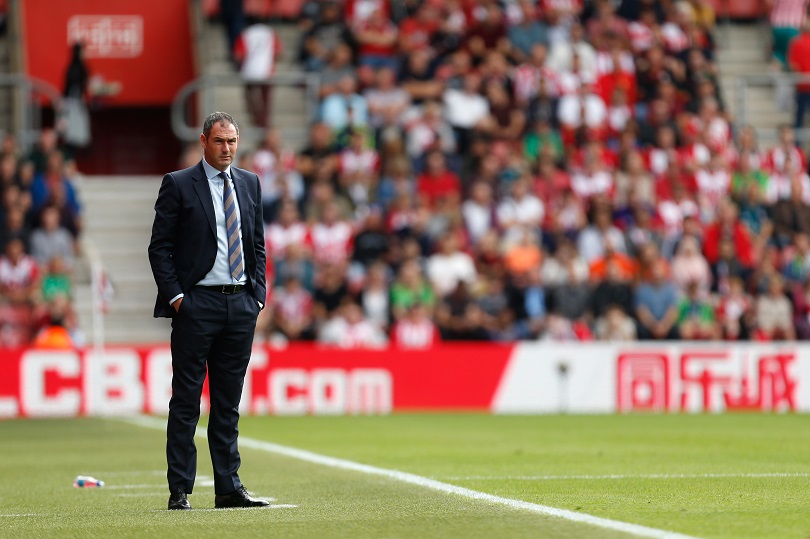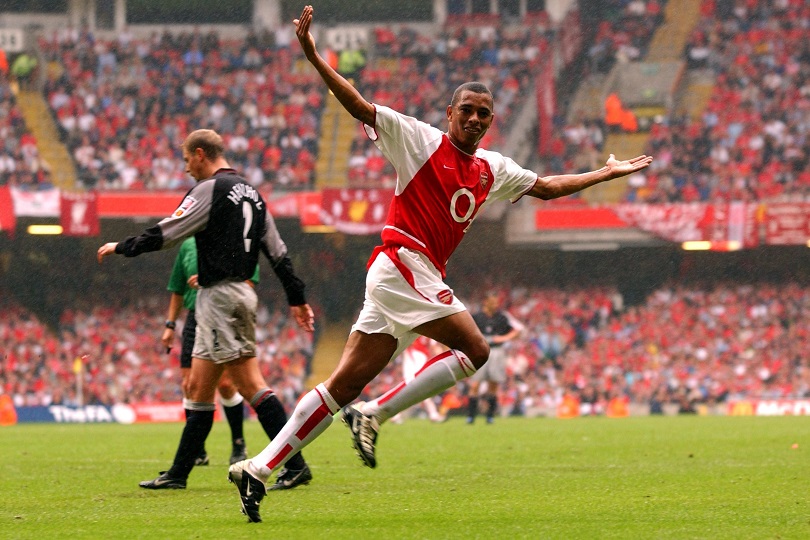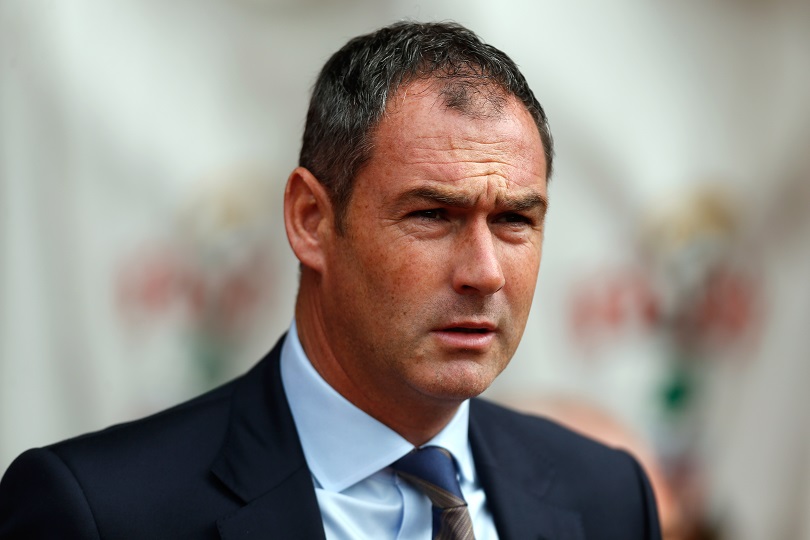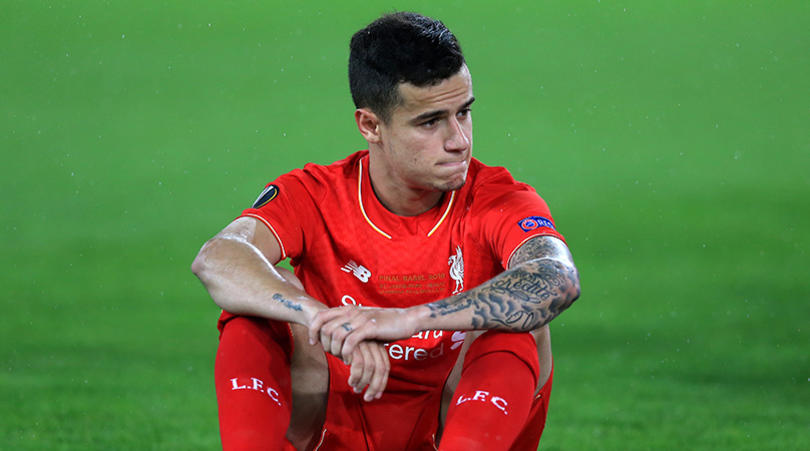Why Premier League clubs are right to close the transfer window earlier
If a proposed rule change comes into effect, domestic business will have to be concluded before the action gets underway in 2018/19. Seb Stafford-Bloor explains why it's a wise move

Paul Clement bristled. His Swansea side had just drawn with Southampton on the Premier League’s opening Saturday and, rather than the point gained, the press conference at St Mary’s centred again on Gylfi Sigurdsson’s protracted move to Everton.
Clement, a likeable, effusive manager, was frustrated. Not with the player or even the club chasing his services, but instead with the awkward mechanism on which Swansea’s preparation had become snagged.
“There's frustration here and I'm sure Southampton are frustrated too," he said. "That's why I think if the window is shut before the season starts, everything is sorted out and we can get on with the football. At our managers' meeting at the Premier League, we spoke about it [closing the window earlier]. The majority of clubs are in favour but maybe all of us have to be for it to go through. It could happen next year.”

Change on the horizon
In a change which could be implemented as early as next year, English clubs would be prohibited from buying players after the season’s start
Just over 48 hours later, Clement appeared to have his wish. On Monday night, it was reported that - at a meeting scheduled for September 7 - the league’s clubs intend to vote in favour of shortening the transfer window. In a change which could be implemented as early as next year, English clubs would be prohibited from buying players after the season’s start - albeit with the caveat that their players could still be sold to foreign sides. It’s clearly an imperfect solution, but it’s an improvement.
At the crux of Clement’s irritation, one presumably shared by most of his peers, is the uncertainty bred by the current system - and Sigurdsson is the perfect example of that limbo. A vital component in Swansea’s 2016/17 survival, the Icelandic midfielder is of critical importance to a side who are expected to struggle again. If he's sold, he will need to be replaced. More importantly, that replacement will have to be integrated into the side without the benefit of a pre-season and with little opportunity for experimentation.

In effect, although Swansea’s season has officially begun, what they are as a football team remains a fluid concept. For the sake of harmony and progress - and with the window shutting in just over two weeks - there's an impression that the club are being pressured into accepting a lower bid from Everton. Targets will have been identified and due diligence probably run, but transfers still take time.
Get FourFourTwo Newsletter
The best features, fun and footballing quizzes, straight to your inbox every week.
Agents' increasing influence
While it’s not possible for a player to physically move between September and December or February and May, that hasn’t made the modern footballer any more committed
The window in its current form is 15 years old. Introduced in the 2002/03 season, it was established with the aim of protecting clubs from the swell of activity generated by the market. The expectation, naive as it sounds now, was that by creating two isolated periods in which transfers could take place, the uncertainty generated by agents throughout the season would be minimised. Squads would be more harmonious, seasons wouldn’t be interrupted by predatory clubs, and power would - to an extent - be reclaimed by the coaches.
That didn’t happen. Agent intereference is inarguably at an all-time high and, while it’s not possible for a player to physically move between September and December or February and May, that hasn’t made the modern footballer any more committed. More clandestine, perhaps, and more political, but certainly not more respectful of a contract.

The right response?
Rising teams are naturally reliant on a more organic progress; that’s a strength compromised by the current conditions
The proposed changes wouldn’t cure any of those ills, but they would have something of a levelling impact. Presently, clubs of less stature are at a disadvantage. Rising teams are naturally reliant on a more organic progress; that’s a strength compromised by the current conditions. A manager can prepare his side over the course of a pre-season, condition his players in accordance with the role expected of them, and then lose the centrepiece of his side in late August.
Think, for instance, of Dimitar Berbatov’s move to Manchester United in the dying hours of 2008’s summer window. In a scramble for numbers, Spurs were able to add Roman Pavlyuchenko and Fraizer Campbell alongside sole senior forward Darren Bent, but were forced to embed both players into the starting line-up once the season had begun. Inferior and wildly different to Berbatov, both inevitably failed. Campbell was never good enough and Pavyluchenko would score just 20 Premier League goals in three seasons.

Part of that was the reality of the food chain. Tweaking the transfer system cannot subdue ambition and players will always covet certain clubs over others. What change would do, however - if, for instance, the summer window was to close at the end of July - is safeguard a period of uninterrupted calm.
Nothing to fear overseas
The Premier League’s financial conditions being what they now are, the threat posed by European clubs is actually relatively small
If the Berbatov/Pavlyuchenko scenario was to occur under those conditions, Tottenham might have had the opportunity to bend themselves around the Russian’s strengths. It wouldn’t have made him a better player, but they might have become a more productive side. Preparatory friendlies, tactical work, and pre-season trial and error are the foundation ingredients of any season and there would be no downside in ensuring that squads were complete before the batter is stirred.
If there's a hesitation, then it’s perhaps because the danger of losing players to foreign leagues is being overstated. The Premier League’s financial conditions being what they now are, the threat posed by European clubs (still able to buy beyond the beginning of the season) is actually relatively small. While an isolated narrowing of the window in this country wouldn’t, for instance, prevent Barcelona’s current pursuit of Philippe Coutinho, that’s not a particularly common scenario.

There are very few clubs in Spain, Germany, Italy or France who could afford to take a player from an English side against their will. The imagined, late-August exodus, where Premier League teams are picked apart by foreign vultures, seems highly unlikely.
Focus on the football
Perhaps the most informative part of Paul Clement’s press conference at the weekend was in his description of the difficulties faced in adapting foreign players to English football. He talked of Roque Mesa, Swansea’s new signing from Las Palmas, and how the midfielder was having to adjust to making decisions quicker and processing the game around him at a faster rate.
Mesa was an unused substitute at St Mary’s, deemed not yet ready despite having arrived as long ago as the beginning of July. It was an interesting moment, not least because it re-emphasised just how long it can take before a potentially pivotal new signing is of use and, of course, how absurd it is that football continues to squeeze those timeframes.
Whatever the original aims may have been, the value of these elongated transfer periods seems to be in the perpetuation of a highly saleable form of sporting melodrama. Unfortunately, their cost has been the erosion of a set of coaching imperatives which football should be doing its utmost to protect.
On September 7, that’s a process which will begin and it’s a move we should all welcome.

Seb Stafford-Bloor is a football writer at Tifo Football and member of the Football Writers' Association. He was formerly a regularly columnist for the FourFourTwo website, covering all aspects of the game, including tactical analysis, reaction pieces, longer-term trends and critiquing the increasingly shady business of football's financial side and authorities' decision-making.

